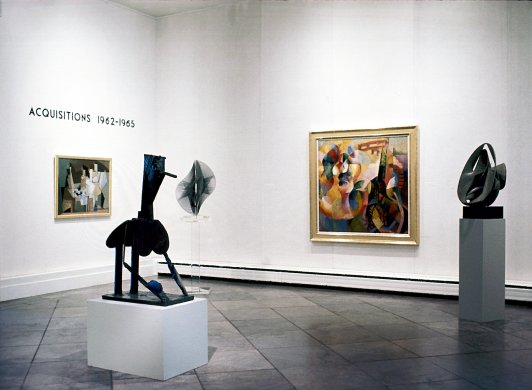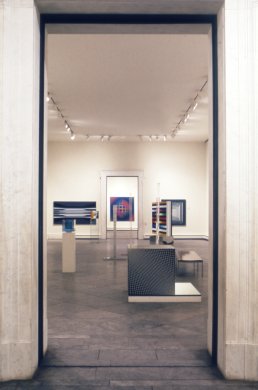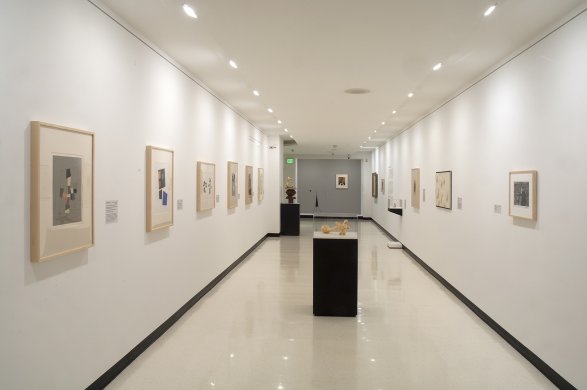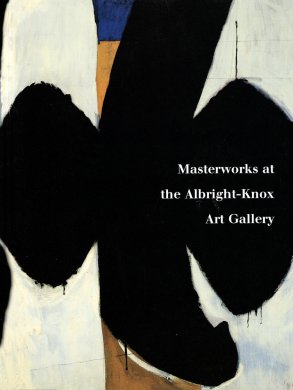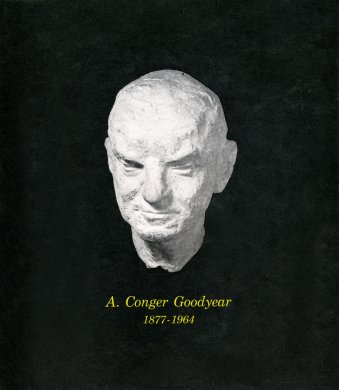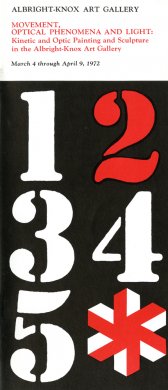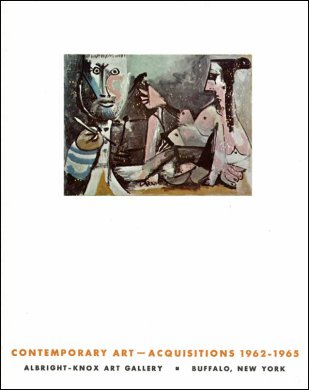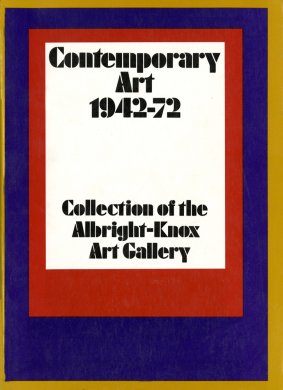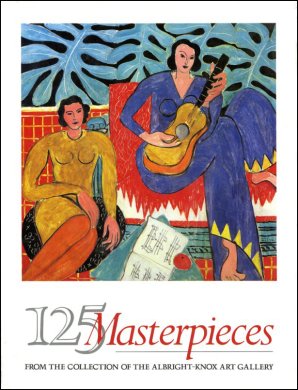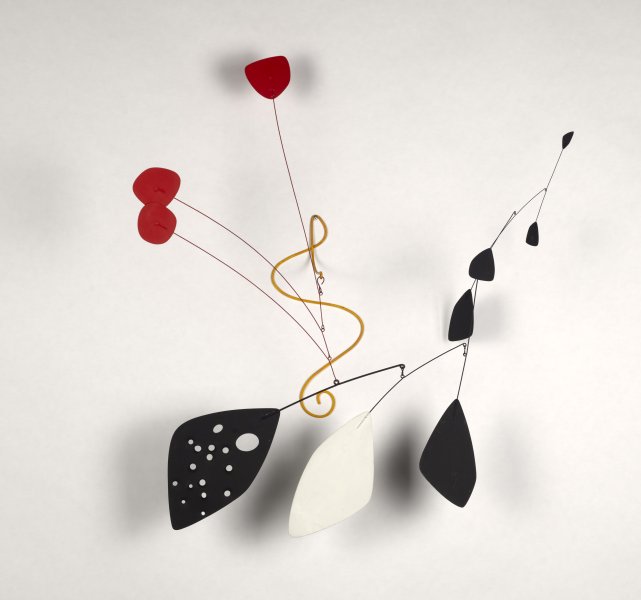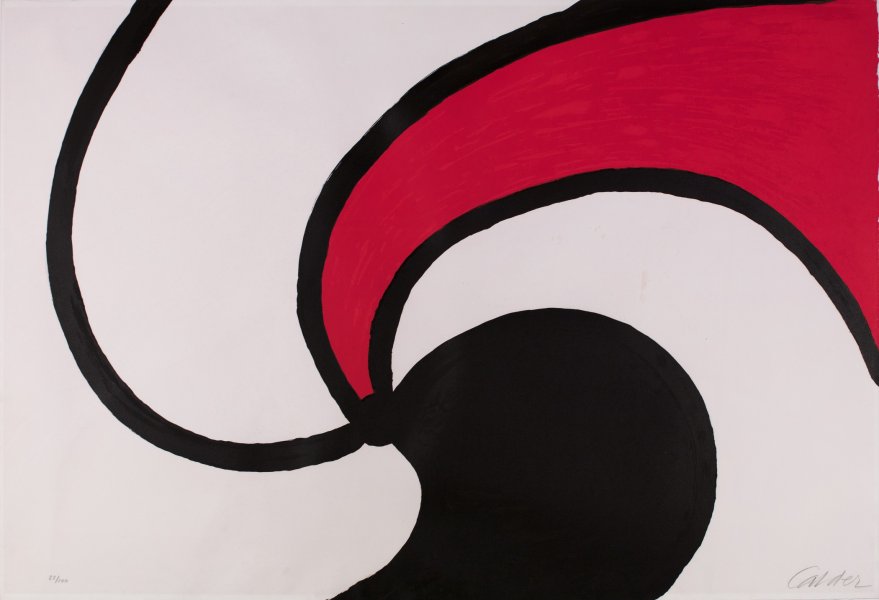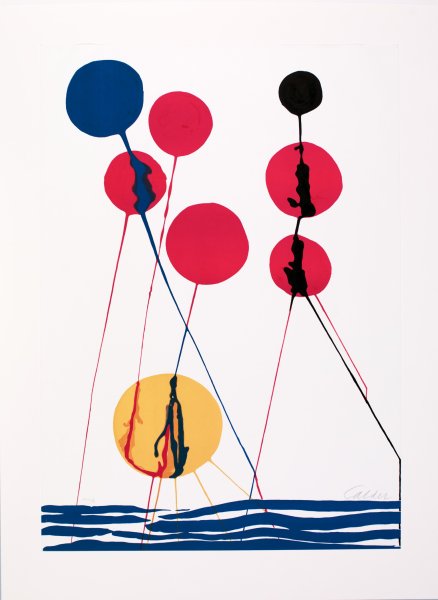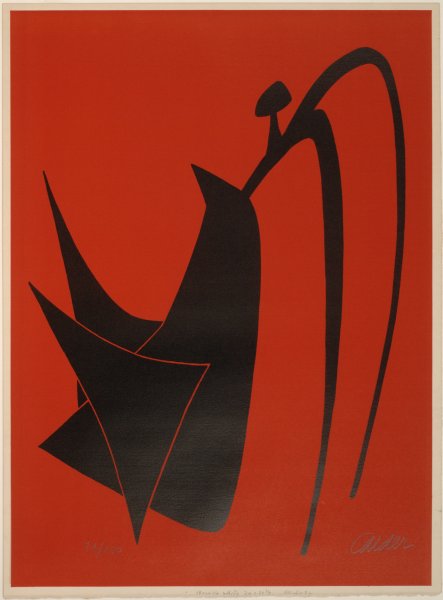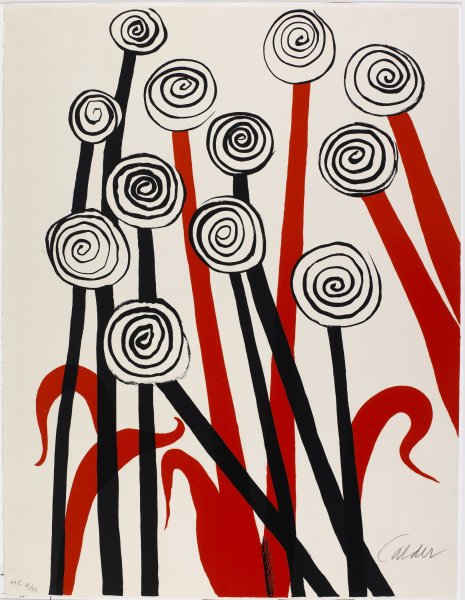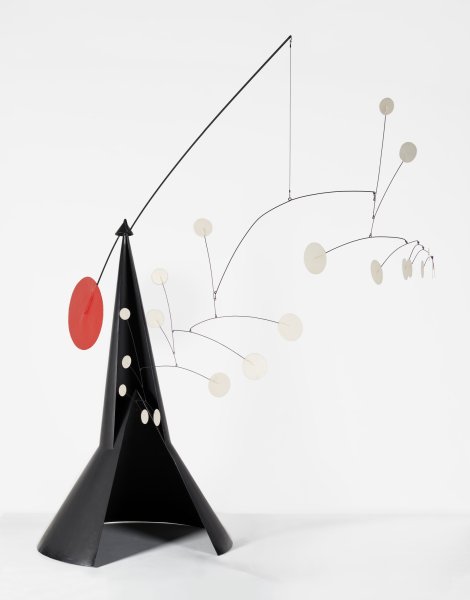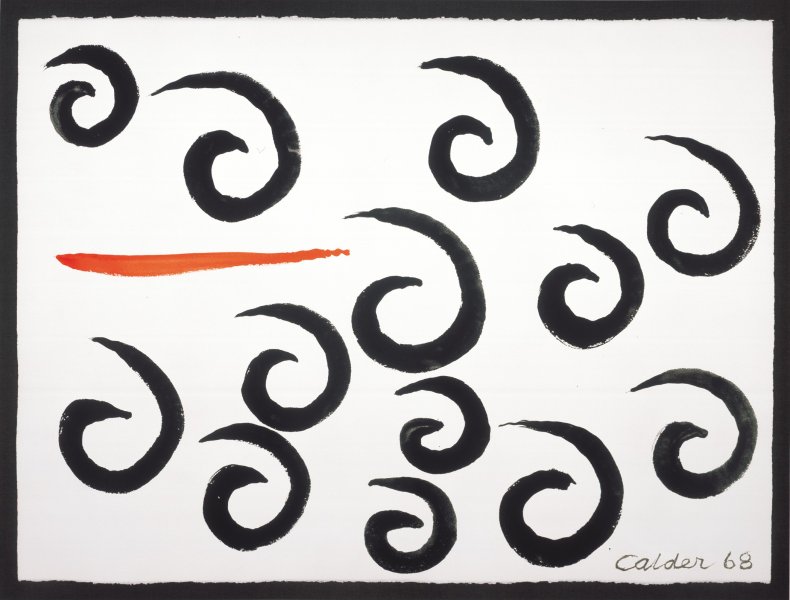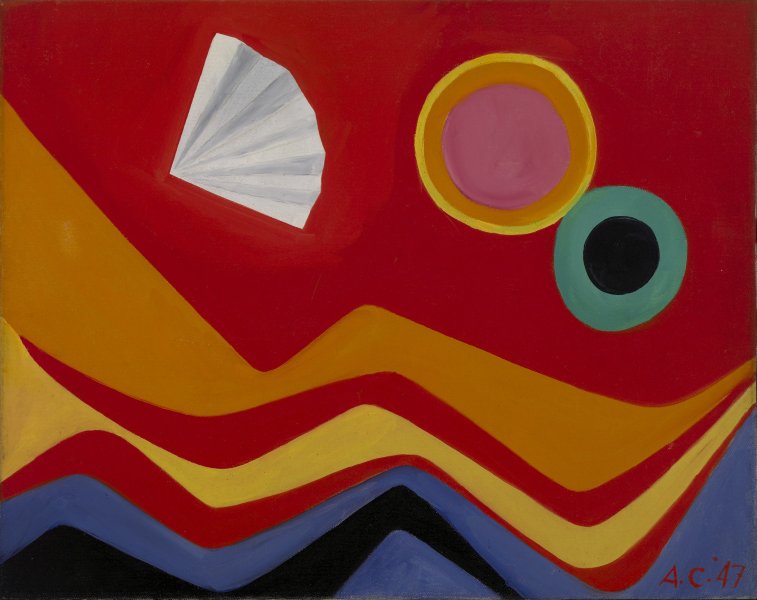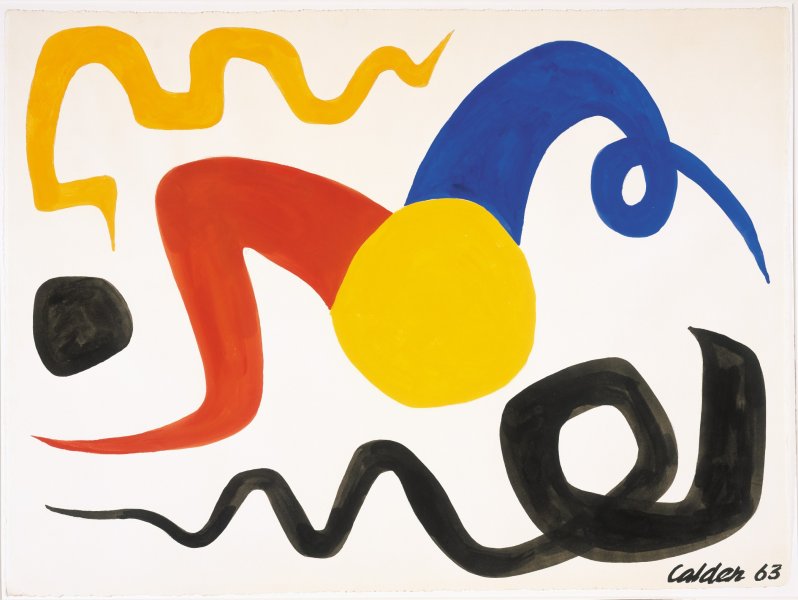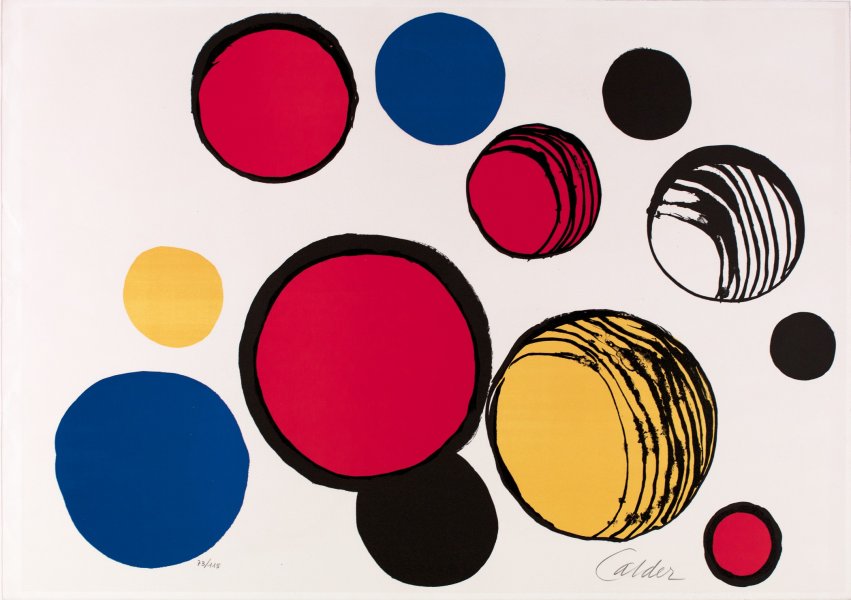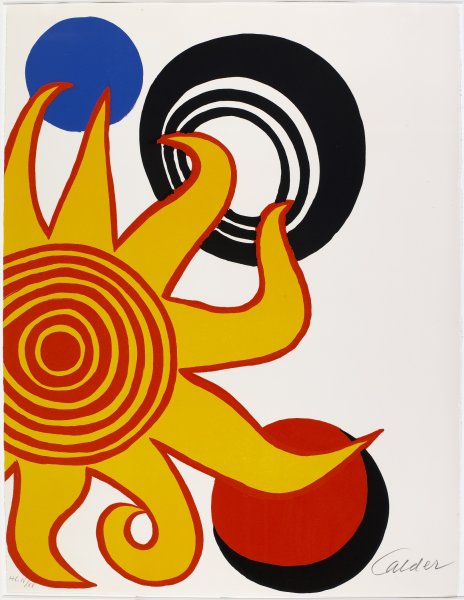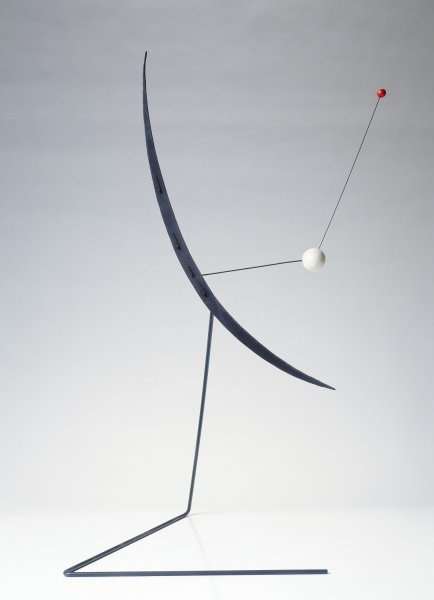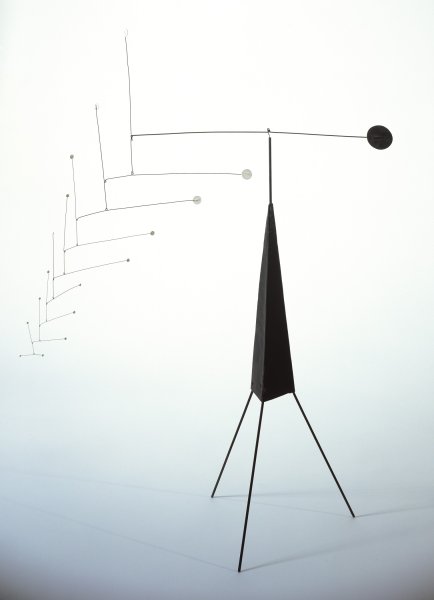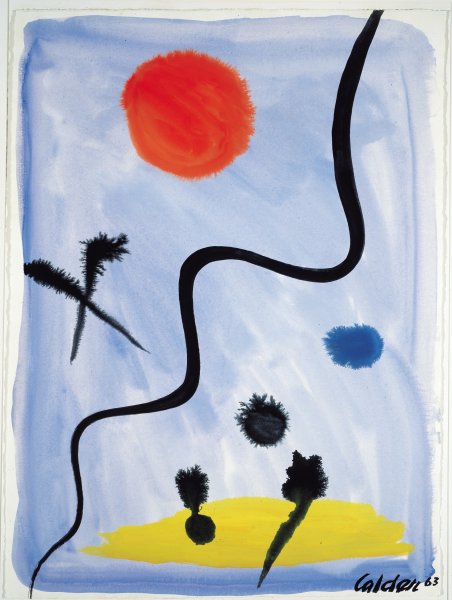Alexander Calder
American, 1898-1976
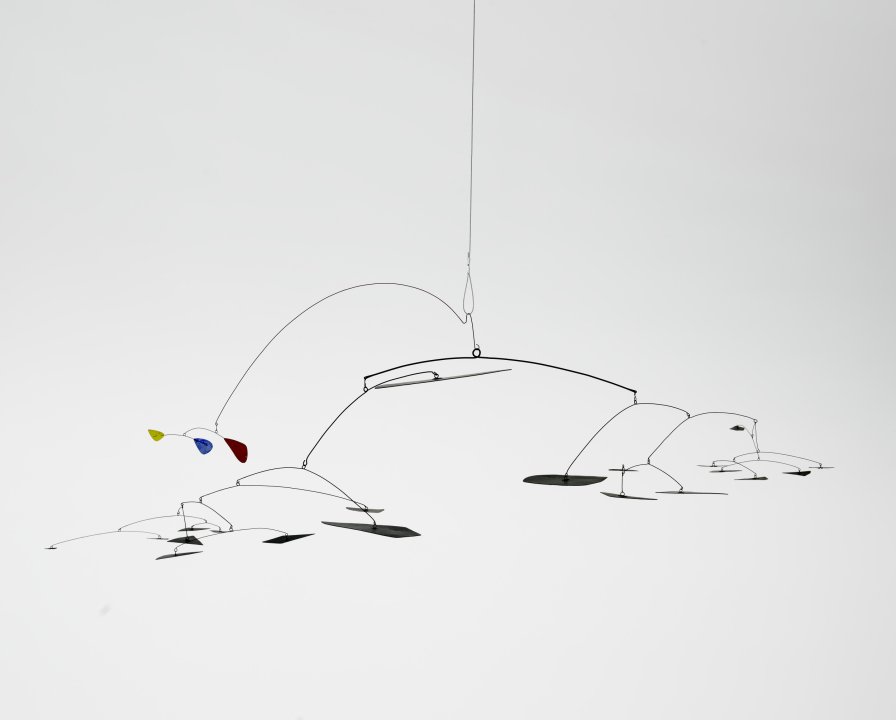
Alexander Calder (American, 1898-1976). Conger, ca. 1950. Aluminum, steel and paint, 43 x 69 x 38 inches (109.2 x 175.3 x 96.5 cm). Collection Albright-Knox Art Gallery, Buffalo, New York; Gift of ACG Trust, 1965 (1965:16). © Calder Foundation / Artists Rights Society (ARS), New York.
Conger, 1950
Artwork Details
Materials
aluminum, steel, and paint
Measurements
overall: 31 x 71 x 61 inches (78.74 x 180.34 x 154.94 cm)
Collection Buffalo AKG Art Museum
Credit
Gift of ACG Trust, 1965
Accession ID
1965:16
Alexander Calder conceived of the idea to create mobile sculptures during a visit to the Paris studio of fellow artist Piet Mondrian in 1930. During the visit, Calder suggested that Mondrian make his iconic squares and rectangles “vibrate and oscillate.” While Mondrian was not interested in the idea, Calder followed through on his own suggestion. Conger incorporates Calder’s iconic red, yellow, blue, and black color scheme. It was originally a gift from the American architect Edward Durell Stone to Albright-Knox patron A. Conger Goodyear. It resided with Goodyear at his home in Old Westbury, Long Island—which was designed by Stone—until Goodyear’s death in 1964, after which it was bequeathed to the museum. Calder named the sculpture after its former owner in 1965.
Label from Artists in Depth: Arp, Miró, Calder, March 25, 2011–April 15, 2012
